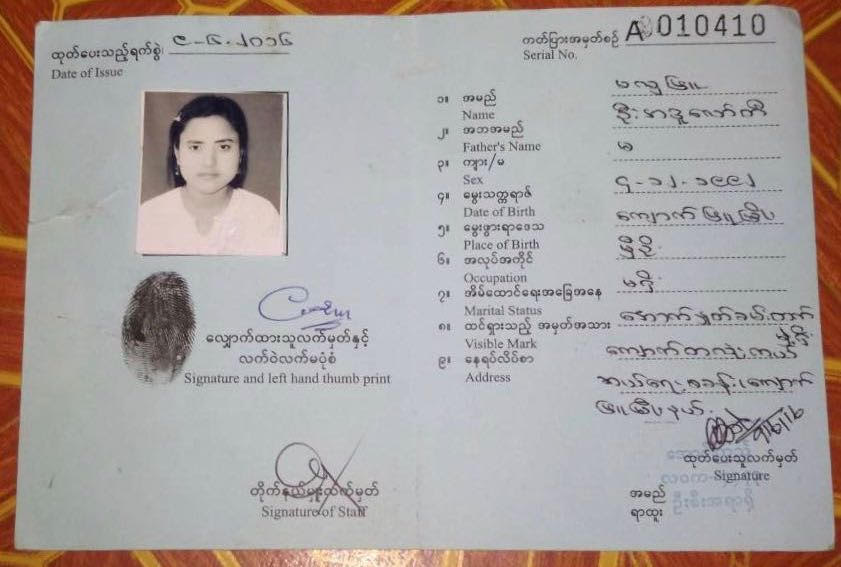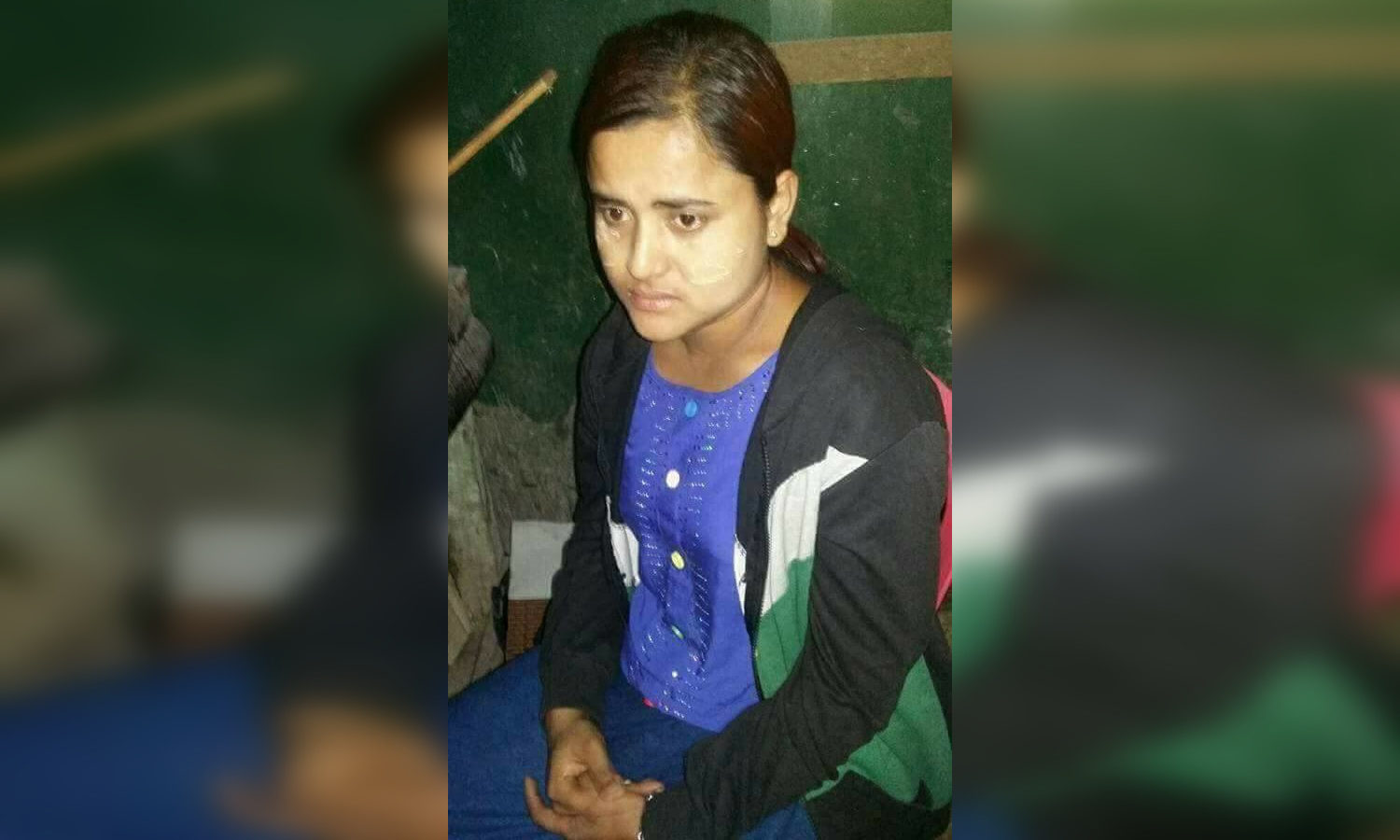For several days, the parents of 26-year-old teacher Ma Hla Phyu had no idea where their daughter was. She had not told anyone she planned to leave the Kyauktalone IDP camp in Kyaukphyu, Rakhine State, where her family and hundreds of other Kaman Muslims had been forced to live since Muslims and Buddhists clashed across the state in 2012. This week, they were told by the camp’s Kaman leader that over the course of three days, their daughter had been arrested, charged, and sentenced to a year in Thandwe Prison with hard labor while trying to travel to Yangon. She was not allowed to seek legal representation during the hasty trial.
Ma Hla Phyu’s charges were filed under Section 6(3) of the 1949 Residents of Burma Registrations Act, which forbids forging, misrepresenting, or lending out one’s identity card. Authorities believe she was arrested in possession of an ID card that belonged to a Rakhine woman named Ma Khin Moe Moe Win. However, according to people familiar with the case, Ma Hla Phyu’s main crime in the eyes of the Myanmar government was being a Kaman Muslim.
Ko Phyu Chay, the government-appointed leader of the Kyauktalone IDP camp, told Coconuts: “Why is it that a Burmese citizen, who lives here and who speaks Burmese, was charged under the Residents of Burma Registrations Act? The fact that she was arrested, charged, and sentenced within a matter of three days indicates that this is an unjust case.”
According to Ko Phyu Chay, Ma Hla Phyu has become the latest victim of an ongoing effort by Myanmar authorities to keep all of Rakhine State’s Muslims confined to the underdeveloped and conflict-ridden region. In a parliamentary session in March, a military-affiliated lawmaker named Maung Myint spoke out against an initiative to relocate Kaman IDPs to Yangon, saying: “I think it will be more appropriate if we treat the cancer that is occurring in Rakhine State within Rakhine State itself.”
In the 1990s, restrictions on movement were imposed specifically on Rakhine State’s Rohingya communities, who are not recognize as citizens of Myanmar. Since 2012, however, these restrictions have been expanded to the Kaman, even though they are recognized among the country’s “135 national races,” making them citizens.

“According to existing law in Myanmar, she is entitled to have a pink National Registration Card (NRC), and she should have the right to travel freely,” said Rohingya activist Nay San Lwin. “She was arrested for traveling to Yangon with a National Verification Card (NVC) [a document generally issued to stateless Rohingya], making her like a foreigner in her own country, while she has been locked inside the concentration camp for almost six years.”
It is not clear why Ma Hla Phyu held an NVC and not an NRC, or, if she did in fact use an ID belonging to a Rakhine woman, why that woman would hold an NVC and not an NRC. What is known is that My Hla Phyu had previously tried to go through the official channels to receive permission to leave the Kyauktalone camp. U Tin Htoo, a Kyaukphyu Township immigration official, recently explained the process to Myanmar Now: “In this area, you have to ask for permission from the government. After starting this discussion, we can verify if their addresses are accurate, and examine whether the application meets the requirements. If everything checks out, we grant them the permission to leave.”
Ma Hla Phyu submitted several applications in 2017 and 2018. They were all rejected without explanation.
Ma Hla Phyu’s sister has said that the family had been relying on the detained teacher’s monthly salary of K100,000 (US$75) and that they have not been able to leave the Kyauktalone IDP camp to see her since she was arrested.
The sister told BBC Burmese yesterday: “We still can’t go. Our father is asking for permission to go see our sister from the authorities, but you know that we can’t leave this place.”
Ko Phyu Chay, the leader of the camp, stressed that Ma Hla Phyu’s case highlights the worsening systemic problems the Kaman community has faced since 2012.
“When we were relocated, they told us it would be for two or three days, so we left our belongings, our work, the animals, and now it’s all gone. They took everything, and it’s now just an empty field,” he told Coconuts.
Referring to the main road leading in and out of the area of the camp, he added: “We can see the Kyaukphyu Kyaungkan Road, but we don’t have permission to use it.”
TOP PHOTO: Kaman teacher Ma Hla Phyu after her arrest in Taungup Township, Rakhine State, on May 23, 2018.



Reader Interactions